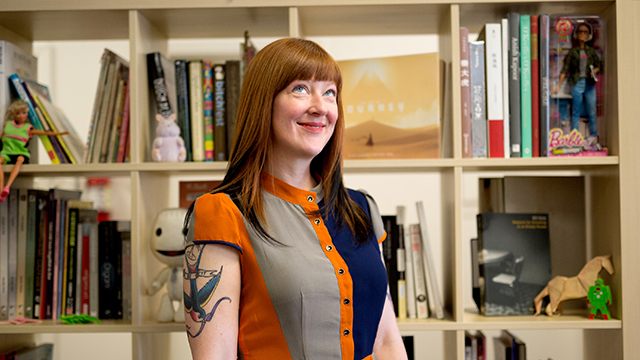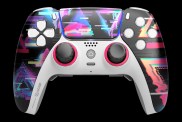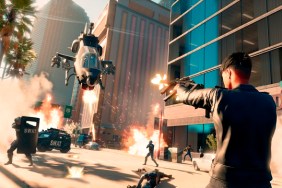Robin Hunicke has had a storied career. She’s worked on The Sims, Journey, the mysterious upcoming Wattam, the VR game Luna, and more. But she’s been just as pivotal in exploring the interactive medium for more than just developing games, given her work in artificial intelligence. That naturally ties into augmented reality which also leads right into her newest game, Luna: Moondust Garden. It’s a simple experience that is in the early stages of AR. But despite it’s
Game Revolution: What did you learn from making the AR version of Luna after the VR version?
Robin Hunicke: One of the things we really thought about when we were working in the VR [space] was the body and thinking about your scale. So in the original title, you start out looking into a little snow globe world and then you interact with the stars above it and you look back down into it and build things and then we teleport you inside where you meet the characters. So basically you construct a little world and then we make you tiny and put you inside so when you interact the bird and the owl, they’re the same size as you. The goal there was to build a connection between the player and the world and then the player and the characters by changing the scale.
And you can do that in VR. You can make yourself huge and then very small by just changing the position that you’re projected in. What we really wanted to do with this was get much more at moving around in the world. Magic Leap is a spatial computing platform. The idea is that this is just something that you use in space everywhere. So we really wanted to look at the way in which a body moves through space and how we would create a little mobile set that comes alive. It has a consistent scale with your world but when you place things, you feel the sense of creativity in where you put them and how you put them together. And what are the first steps toward that?
Typically, when we build things, we are trying to make things accessible. It’s a new technology but what about people who aren’t core gamers? What about the people who are just everyday regular citizens of the world? How are they are going to react to this technology? What is this sort of baseline delight that comes from this technology? It’s effectively being able to put something down anywhere and then see it come to life. So you plant a seed and it pops up out of the table.
So a lot of what we worked on in the project was the delight of placement, the feeling over the tactile quality of being able to wand over the world you created, and getting this feedback from the shapes and characters. Obviously, if we had endless amounts of time, we’d love to do much, much more. A lot of these kinds of projects are about us figuring out what is the juicy space to explore and do research in. And this project definitely inspired a lot of new ideas about three-space computing and being able to be a creator in the world with virtual objects.
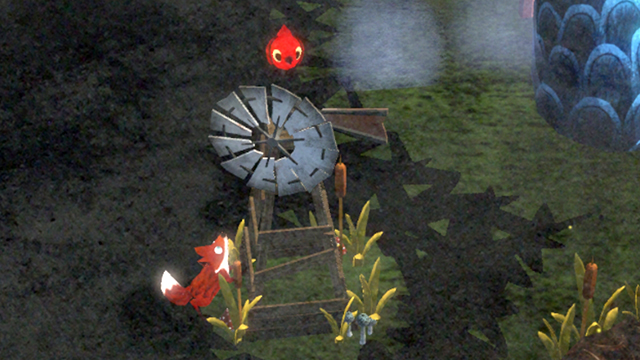
GR: What was the genesis of this idea? Did you want to make something AR or did you want to do something more with Luna?
RH: It was kind of both. We were excited about the idea of having more of the worldspace of Luna to explore because we loved the characters. Meghan [Auer, 3D artist at Funomena] in particular took these a lot of these initial concepts and softened some of the look and made them so cute. So we thought we could do something fun with these cute characters.
We had been talking to Magic Leap since about 2013. So we had been thinking of what kind of projects we wanted to work on and as Luna was ramping down, we started thinking about the fastest way to get content onto this platform and get away from worrying about the constraints of building for it and thinking mostly about the interaction design. So we thought we could just take the Luna stuff and expand it. We already knew how it looked and felt and the tenor of that universe, so that would give us an extra step forward in being able to interact with the technology itself. So it was selfish for us because we loved the world, but it was also was a good idea for them because we weren’t going to spend a lot of time doing concept on new characters or a new world. It gave us more momentum.
GR: It reminded me of Winnie the Pooh. Was that an inspiration? What else inspired you?
RH: We are really inspired by the culture of imagination that surrounds storytelling, fairy tales, children’s books, and animation because it helps you unlock the part of you that can still believe in magic and can still see things that are new with delight and joy and not with a skeptic’s eye.
And a lot of times with new technologies, people are very skeptical to believe that it’ll work or especially people in gaming or tech reporting, people that spend a lot of time around computers. I think we forget how transformative something like this can be. If you put a headset in the hands of something of someone who has never seen a modern video game, for them, it’s mind blowing. So we’re inspired by toys, playful things, and a softer side of animation, gaming, and play because we feel that it helps us get new experience into the mind and into the body in a more open way.
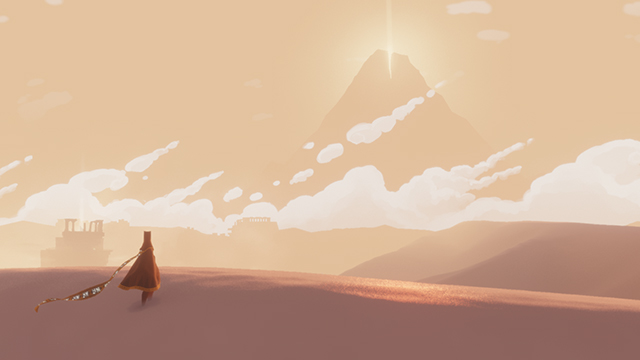
GR: How has your work on Journey helped you get to this point?
RH: My background is in computer science and robotics and I was always interested in storytelling and the ways in which we can connect people with machines and how machines can create relationships with us and other people.
When I started working in games when I went to work for Will [Wright] and worked on The Sims, I was really fascinated by the way that the simulation of the characters made you feel connected to them. And all the games that I worked on have been about this connection to characters, creativity, and other players in this way. Journey was a chance to explore what online really feels like like. Luna was a chance to explore how do you get intimate with these characters that are virtual but seem so real. Like when you’re inside, how do you connect through the sense of presence?
With this project, it’s about how you take those learnings and reattach them to real space. I have so much more control when I am designed a 2D-screen game. You move characters around and can move the camera. As a designer, I have so much control. I can just say that we want you to look at another character and turn the camera and then you look at it. You can’t do that in VR. You can’t move the camera at all. You have to motivate the character with audio and visuals.
I feel like the through line with all of it, if the audio is really amazing, if you set the context with audio, and then you also physically create this sense of tactility with the objects, even if it’s in a space that is relatively sparse and you only have a few trees and plants and the fox can jump around, it feels like a place. It has “placeness.” In my career, what I’ve realized is that it’s not about how much you do or having a lot of fidelity, it’s about the right things and doing the right things. It’s a very different way to design.
Click to the next page to hear about the AR and Hunicke’s extensive thoughts on the budding medium.
